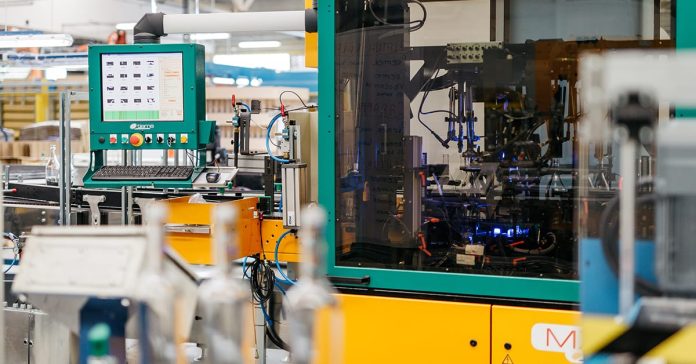Telekom Slovenia (Telekom Slovenije) has hailed the rollout of its 5G-connected smart factory in Slovenia, deployed with local industrial networking provider Iskratel, claiming it is making rapid headway to define its 5G-geared Industry 4.0 proposition for the wider market.
The state-owned network operator is following the Deutsche Telekom model with so-called ‘campus networks’ for industrial customers, offering a proto-slicing of its public LTE network, as a pre-cursor to slicing-proper with 5G.
The new test network, announced in February, is at an Iskratel production plant in Kranj, northwest of Ljubljana. The pair said the set-up has already proved more valuable than equivalent models in labs or on paper.
Ultimately, they are looking to hone a cellular-based Industry 4.0 offer to help customers with industrial control, automation, intelligence, and transformation. The pair said: “This is a key sector enabled by 5G, which will offer manufacturers and operators with significantly greater control and automation.”
Matjaž Beričič, board member at Telekom Slovenije, commented: “We will enable state-of-the-art virtualised networks for different verticals – in different ways – as fully virtualised or as a hybrid public-private so-called ‘campus’ network. We have established a reference case in which we will be able to test different capabilities, implementations and new ideas for new opportunities on specific use cases.”
Kristijan Melinc, sales director for Iskratel’s core business unit, said: “We leveraged our expertise in core networks and with our partners shaped a complete solution that will allow us to address demands for campus networks in various industries. We were able to learn much more about the intricacies of 5G applications from our real-world installation rather than from theory or lab-style test projects.”
Sašo Šimec, chief operating officer at Iskratel, said: “State-of-the-art connectivity… links the real-time analogue world of the bustling factory with digital processing power… in the cloud, as its nervous centre. Artificial Intelligence alerts our staff of deviations from the optimal processes and workflows, well ahead of time.
“Therefore, 5G increases the safety of our staff, as well as improving our bottom line. We are convinced the essential building blocks of this solution can be reused in other industry verticals and deliver similar value to different kinds of operations.”
Slovenia’s Institute for Non-Ionizing Radiation (INIR) has run checks on 5G electromagnetic radiation at the site, with maximum base station traffic. The results showed radiation exposure “far below the warning values” set by the European Council, said INIR.

